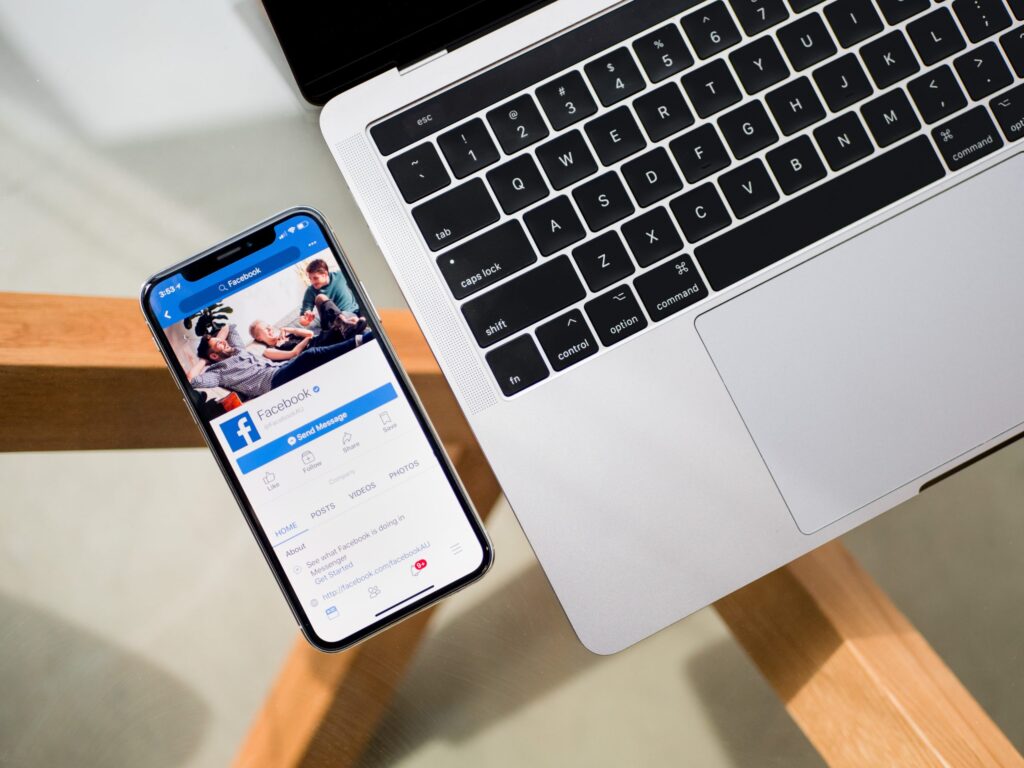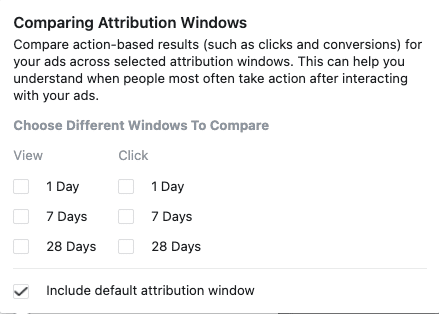How Apple’s Recent Release Could Affect Your Facebook Advertising
You have probably heard by now that Apple’s recent iOS 14 update will impact Facebook advertising, but you may still be wondering exactly how this will unfold. There are still a lot of questions that remain unanswered, but we’ve compiled what we know so far and some tips to help you prepare.
The biggest impact will be for businesses that advertise mobile apps or optimize campaigns for events that occur within their app. However, there will also be some significant shifts for businesses who don’t deal in apps. With the latest update to Apple’s systems, users will be able to learn about how an app uses their data. App developers will now be required to share details on their privacy policies, the data they collect, and how they intend to use that data. This information will be displayed on the app’s product page and users will be able to learn about some of the “data types an app may collect, and whether the information will be used to track them or if it will link to their identity or device” according to Apple’s announcement.
Apps will also be required to explicitly spell out details for users to opt-in in order to get permission from users to track their activity.
Apple will serve a prompt that will make it clear that the app wants permission to use your data with two simple buttons – Allow Tracking and Ask App Not to Track.
Does this mean that people who opt out will stop receiving ads? Afraid not – it just means that they’ll receive less relevant and personalized ads moving forward. As more people opt-out of tracking on iOS 14 devices, ad personalization and performance reporting will be limited for both app and web conversion events. In response to these updates, Facebook will begin processing pixel conversion events using Aggregated Event Measurement. This protocol will allow for measuring web events from iOS 14 users and will limit domains to eight conversion events that can be used for campaign optimization.
Facebook will initially configure the conversion events they believe are the most relevant to your business based on recent activity. All other events will be made inactive for campaign optimization and reporting. Ad sets that were optimizing for a pixel conversion event that is no longer available will be turned off.
The configuration and limits imposed by Aggregated Event Measurement won’t apply until Apple begins to enforce their iOS changes. Apple originally planned to enforce these changes in September of 2020 but extended their timeline to give developers more time to prepare. At this time, an exact date for enforcing these changes has not been released but this is expected to occur within Q1 of 2021.
If you are planning to deliver ads optimized for conversion events that occur in your business’ app, here’s what you need to know/do:
-
- Update to Facebook’s SDK for iOS 14 version 8.1 to help personalize ads delivered to iOS 14 users, and continue to receive app conversion events reporting. This can be done from the Events Manager and will need to be done by an app admin.
- Your app can only be associated with a single ad account. However, you can use the same ad account to advertise for multiple apps.
- You can still use your existing ad accounts to advertise to iOS 14 users, but you’ll need to create separate iOS 14 app install campaigns.
- Each app is limited to 9 campaigns at once with 5 ad sets of the same optimization type. There will be a 72-hour reset period after you turn off or delete one of your 9 allotted campaigns before it will no longer count against your limit.
- Auction is the only available buying option when you create an ad for iOS 14 devices – reach and frequency aren’t available.
- Once your campaign is published, you can’t turn on or turn off the iOS 14 campaign toggle – you’ll have to turn off or delete your entire campaign.
If you are planning to deliver ads optimized for conversion events that occur on your business’ website Facebook advises you to do the following:
- Complete domain verification
- Verify your website’s domain to help avoid disruption of your website campaigns. This will allow you to configure pixel conversion events when Aggregated Event Measurement becomes available.
- Plan to operate with eight conversion events per domain
- Configure eight preferred web conversion events per domain in Events Manager. You can arrange your eight conversion events in priority order and select one of the eight to optimize for. For people who opt-out of tracking, only the highest ranked event will be tracked.
If you plan to deliver dynamic ads for your business’s app:
- Some iOS 14 devices may default to a mobile web browser destination (instead of an app or app store). To direct all iOS 14 users to an app destination, create a new campaign that optimizes for link clicks.
If you plan to deliver dynamic ads for your business’s website:
- Set up your catalog to only use one pixel – your pixel will only report and optimize for a maximum of eight conversion events for each domain.
- If you use multiple domains in your catalog, verify each website domain that you use as a product URL and avoid using any product URLs that redirect to another domain.
There will also be some changes and limitations when it comes to reporting. The following limitations are to be expected across Ads Manager, Ads Reporting, and the Ads Insights API:
- Delayed reporting (up to 3 days) – you can still pull “real-time” reporting, but metrics will need to be taken with a grain of salt knowing that some data points may be delayed
- Estimated results (statistical modeling may be used to account for results at the ad set and ad level unless the campaign is composed of a single ad)
- No support for breakdowns – for both app and web conversions, delivery and action breakdowns such as age, gender, region and placement will not be supported
Changes to account attribution window settings: Once Apple enforces their iOS 14 requirements the attribution window for all new or active ad campaigns will be set at the ad set level, rather than at the account level.
- Going forward, 28-day click-through, 28-day view-through, and 7-day view-through attribution windows will not be supported for active campaigns. The new default attribution windows will be 7-day post click, and 1-day post view. Facebook does note that for inactive campaigns they will still report using legacy account level attribution and historical data for attribution windows that are no longer supported will continue to remain accessible via the Ads Insights API.
- Before this data becomes unavailable, we recommend taking the following steps:
- Use the Comparing Windows feature to see how conversion data may change across different attribution windows and have conversations with stakeholders about how data may be impacted moving forward.
- Before this data becomes unavailable, we recommend taking the following steps:
-
-
- Export any historical 28-day view or click and 7-day view attribution window data you need.
-
While these changes may present some hurdles to overcome, we at Parallel Path believe in increased transparency and consumer privacy regulations, and are here to help you prepare for these changes!



